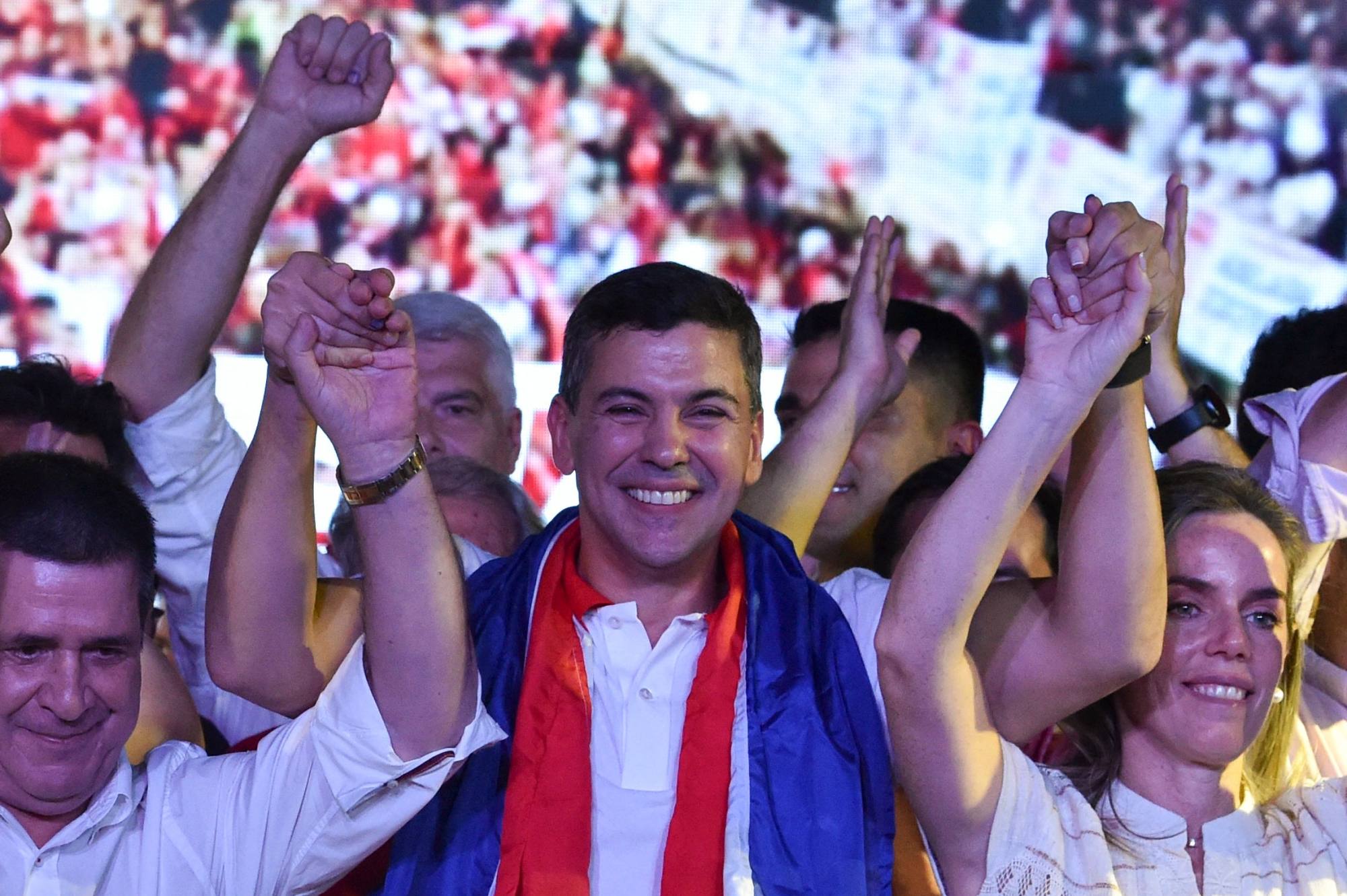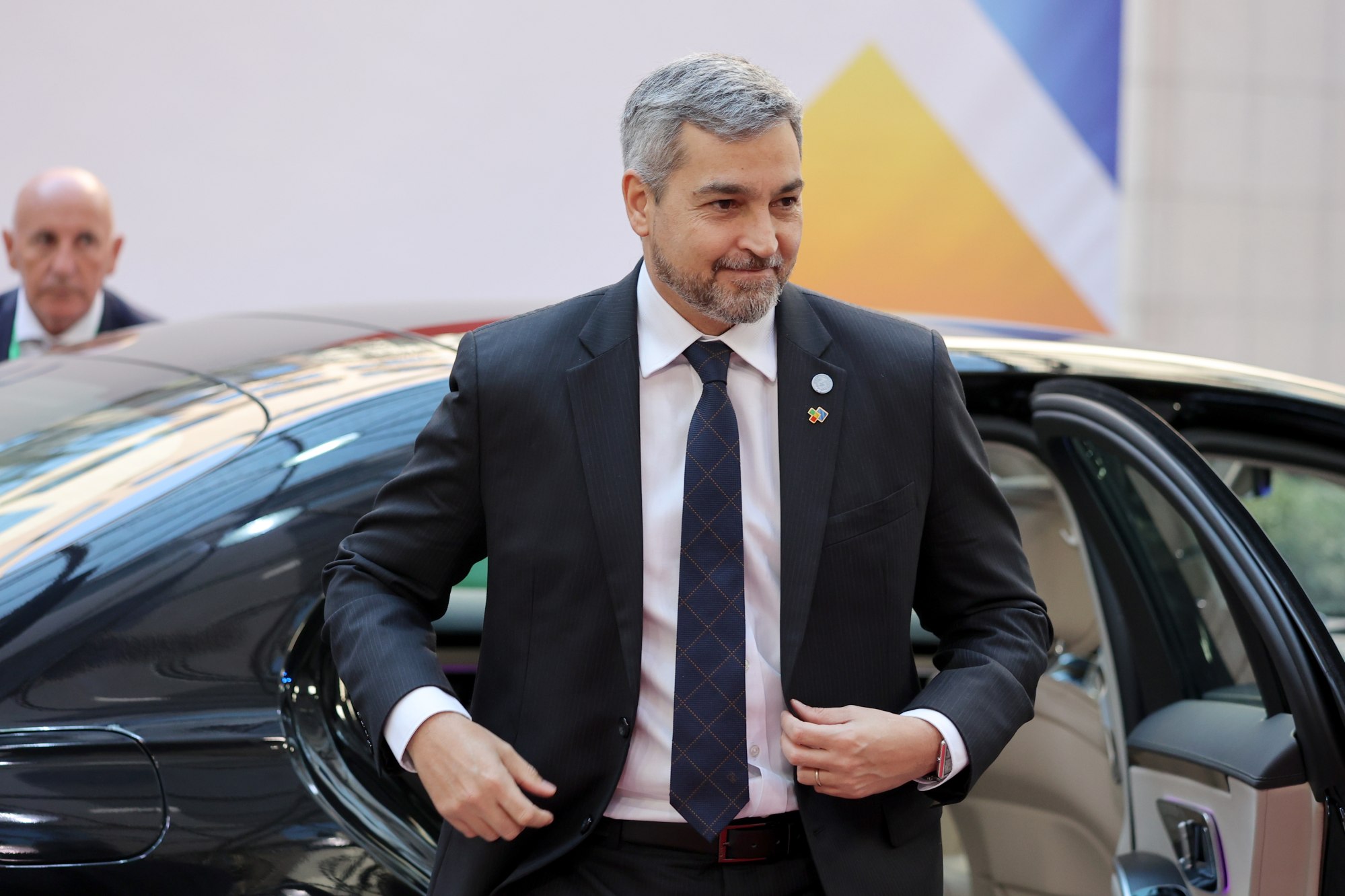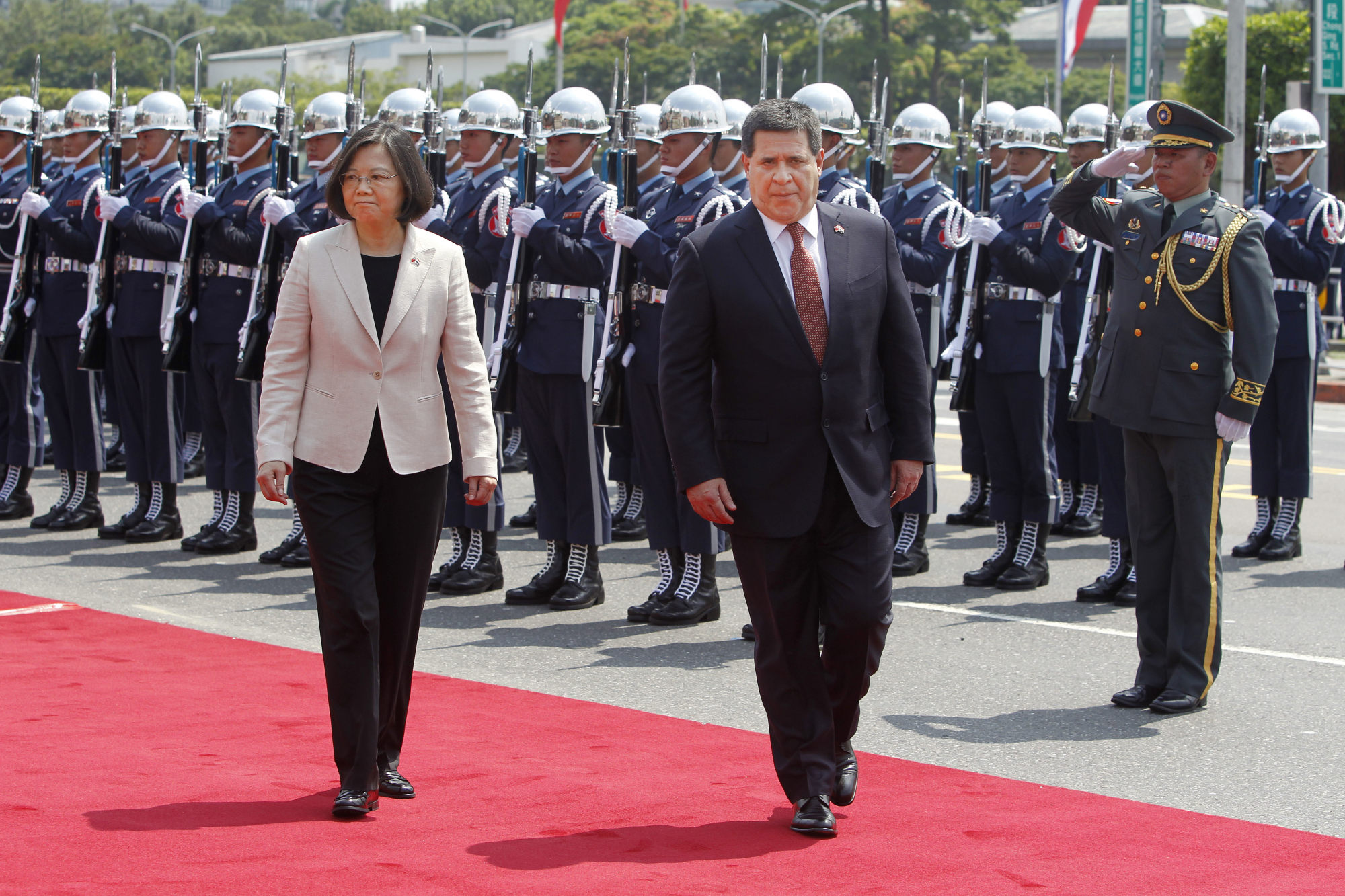
For Paraguay and its new president, Taiwan ties are weighed against China’s potential economic role
- World’s largest country defying Beijing’s claim of sovereignty over self-ruled island enters spotlight ahead of No 2 Taipei official’s visit to Asunción
- Economic challenges nudge Paraguayan beef industry and other domestic voices to advocate for departure from status quo
The landlocked South American nation of 6.8 million people cemented its diplomatic ties with the self-ruled island back in 1957 during an era defined by the US-supported dictatorship of Alfredo Stroessner, an avowed anti-communist.

These undercurrents in Paraguay’s domestic politics, pitting the country’s beef industry against Taiwan loyalists, are playing out amid a larger debate over relations with Beijing in Mercosur, a South American regional bloc that Asuncion is part of.
Until 2022, Russia was the second-largest buyer of Asunción’s beef, accounting for roughly 20 per cent of total sales, according to official Paraguayan data. Moscow spent US$300 million on Paraguayan beef in 2021, but the war and Russia’s subsequent financial isolation have severely hurt sales.
Paraguay now seeks access to the American beef market, these sources explained, as US inspectors assess the country’s principal exporters.
Negotiations over sanitary regulations and import terms have been under way for almost three years, while Chinese buyers may be more flexible given the need to diversify their beef sources and ensure food security back home.
American businesses oppose the move. In June, lobbyists from R-CALF, representing the US cattle industry, urged US agriculture officials to “immediately withdraw” their proposal permitting the importation of fresh meat from Paraguay.
The group claims introducing Paraguayan beef to the American market could “pose an unnecessary and avoidable risk of spreading foot-and-mouth disease” domestically while “exposing consumers to beef sourced from cattle that weren’t raised adhering to more stringent production standards”.
Asunción has suggested that the drawn-out negotiations could drive them to reconsider their position on Beijing.
In 2020, the Paraguayan Association of Beef Producers and Exporters and the Rural Association of Paraguay advocated relations with China, saying it could provide an economic lifeline.
The Paraguayan embassy in Washington said in response to a Post inquiry that Paraguay and Taiwan enjoyed more than 66 years of uninterrupted diplomatic relations.
It described “a bond that has been fostered through trade and cooperation in fields ranging from infrastructure to public health and education” and having “deeply shaped a very positive agenda between the two countries”.
Asunción and Taipei “share common democratic values and principles”, added embassy spokesman Lucas Strübing, who did not elaborate on whether discussions were under way to establish formal diplomatic relations with Beijing.

The Taipei Economic and Cultural Representative Office in Washington, which serves as Taiwan’s de facto embassy in the US, did not immediately respond to a request for comment.
Their legislative initiative elicited stern resistance from the powerful governing Colorado Party, and failed by a vote of 25 to 16.
The Taiwan question also surfaced during the Paraguayan presidential campaign. Peña, bolstered by Benítez’s endorsement and his personal history as a former student in Taiwan with a broad network of friends there, championed maintaining ties.
Efraín Alegre, the leading opposition candidate and head of the centre-left Coalition for a New Paraguay, pushed for closer relations with Beijing, arguing that Asunción’s interests were being sidelined.
Peña won the presidential race with 43 per cent of the vote, comfortably defeating Alegre, who garnered 27 per cent. Despite the decisive victory, analysts believe the Taiwan conundrum is far from settled.
Ricardo Canese, director of international relations for the Guasú Front, described the Colorado Party as having “long reaped the rewards of unchecked Taiwanese donations and credits to bolster its political dominance”.
The status quo was preventing Paraguay from capitalising on the “immense opportunities” in soy and beef exports, infrastructural investment, and industrial modernisation, Canese said, with the US-friendly economic elites who have traditionally backed the Colorado Party bearing a steep cost.
Such pressure might spur influential supporters to gravitate to other political groups willing to promote a relationship with Beijing and thus better serve their immediate economic interests, Canese said.
But Washington could still play a compelling card: issuing an arrest warrant for Horacio Cartes, Paraguay’s previous president and a top figure in the Colorado Party.
Earlier this year, the US imposed sanctions on Cartes, accusing him of “achieving political success through corrupt means”.
In addition, US treasury officials accuse Cartes of offering bribes to several Paraguayan politicians during his successful 2013 presidential campaign.

Sanctions now prohibit Cartes from entering the US, and all his assets within American jurisdiction have been frozen. Lawyers for Cartes call the sanctions politically charged and unsubstantiated.
As Peña depends on political support from Cartes as well as the US, Canese said, “it is unpredictable how this situation will end”.
In trying to balance disparate powers and interests, Peña might draw inspiration from the unorthodox approach of fellow South American country Uruguay.
Mercosur in its charter made joint negotiation of trade agreements a cornerstone principle. The stipulation ensures that no member can independently negotiate tariff reductions with third countries and all member nations must ratify any agreements.
Uruguay has often complained that this provision works against its national interests, and in 2021, right-wing President Luis Lacalle Pou began formal negotiations with China to reach a bilateral free-trade agreement.
The move angered Brazil and Argentina, who fret about the impact of China’s low pricing on their vulnerable economies.
Several experts contend such negotiations would be impossible given the lack of formal diplomatic relations between Paraguay and China. Nevertheless, Peña has indicated in recent interviews that he would be open to negotiating trade with Beijing.
Progress in joint Mercosur negotiations with Beijing could afford Asunción an opportunity for Paraguayan businessmen to engage their peers in the bloc, said Canese, with consensus-building possibly forcing “the establishment of diplomatic relations between China and Paraguay”.
Yet serious doubts persist about the technical capacity and political will among the other Mercosur members for the talks to proceed.
Brazil and Argentina were not ready to sign free-trade agreements with China owing to no consensus among industry leaders, labour unions and politicians in both nations, according to Ignacio Bartesaghi of the Catholic University of Uruguay, who said the countries had shown reluctance to broker trade deals, even amid Chinese investments.
While Lula made a case for concluding the EU agreement before commencing negotiations with China, “that was a strategy to curb Uruguay’s interest in negotiating bilaterally”, Bartesaghi added.
The uncertainty surrounding Paraguay’s non-recognition of Beijing could prove a barrier to executing impact and economic feasibility analyses, said Francisco Urdinez of the Pontifical Catholic University of Chile, who believed such studies were crucial for negotiating free-trade agreements.
Any prospective deal with China might encounter significant resistance from affiliates of the Argentine Industrial Union and the Federation of Industries of the State of São Paulo, whose ranks include South America’s most prominent entrepreneurs.
Despite the potential benefits of free-trade agreements for Paraguay and Uruguay, China would likely refrain from advancing negotiations if doing so risked damaging its economic and diplomatic rapport with Brazil, Urdinez said.
The Taiwan Act, passed last year by the US Congress, indicated Washington would be open to supporting Taipei in its “chequebook diplomacy”, he added, and that taking advantage of the Americans might better serve Paraguayan interests in the short and medium term.
“Paraguay benefits enormously from its link with Taiwan because it can use it as a negotiating element [with the US], even though it is a small country,” Urdinez said.
Bruna Santos, director of the Brazil Institute at the Wilson Centre, also voiced scepticism about Brazil making concessions to Uruguay and Paraguay. She said Brasilia had valid concerns about domestic re-industrialisation and that luring Chinese foreign direct investment took precedence over a free-trade agreement.
A Brazil with closer EU ties would have more room to manoeuvre in negotiations with China and the US, Santos said, adding: “In a ‘hedging-bets’ strategy, it doesn’t make sense to opt for a free-trade agreement between Brazil and China.”
Whatever the challenges, China is unlikely to cease its efforts to bring Asunción on side. Beijing’s proponents in the country include Charles Andrew Tang, chair of the China-Paraguay Chamber of Commerce and for years a presenter of the case before businesspeople, elected officials and college students.
By recognising Beijing’s claim over Taiwan, Tang said, Paraguayans could reap rewards such as rail infrastructure linking Asunción and Ciudad del Este, the nation’s second-largest city, as well as sewage treatment, high-speed internet, and affordable housing projects.
Strong political conservatism was the only plausible reason Paraguay maintained diplomatic relations with Taiwan, he added, describing Beijing’s financial aid as unmatchable.
Tang said he met Peña during the recent presidential campaign to underscore the economic benefits of partnering with China. Despite holding what he called a “friendly exchange” with the president-elect, Tang did not see a shift coming soon.
“Peña is keen on negotiating with both parties, a stance that China does not accept,” he said.
Yet Tang, who has met Benitez and professes to know the outgoing president’s views on Taiwan ties, expressed hope that Peña’s ideas would gradually align with those of the man he will succeed.
“Benitez indicated that establishing relations with Beijing was inevitable, as Paraguay couldn’t indefinitely resist engaging with the world’s second-largest economy,” said Tang.

